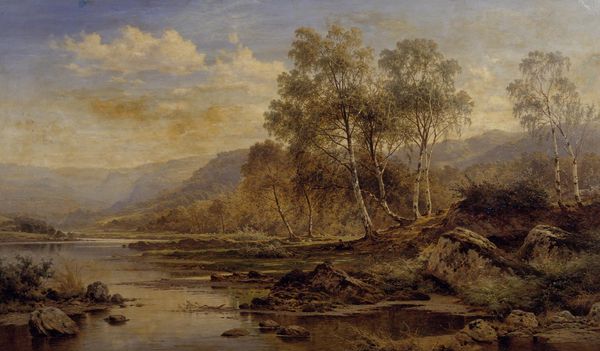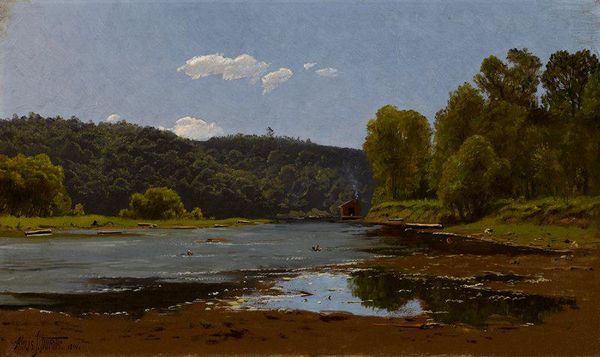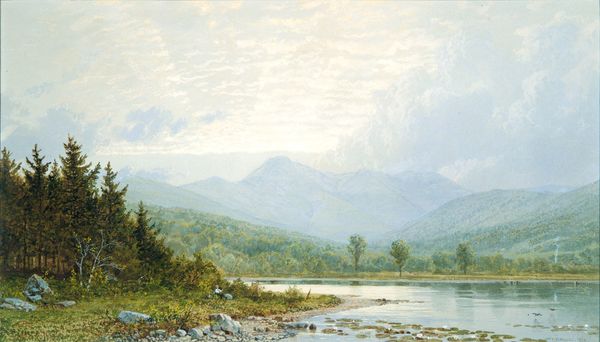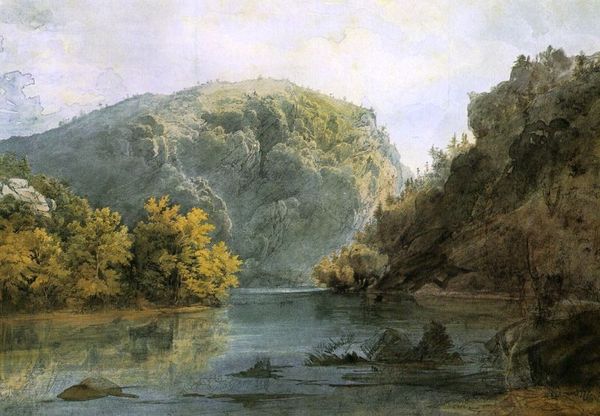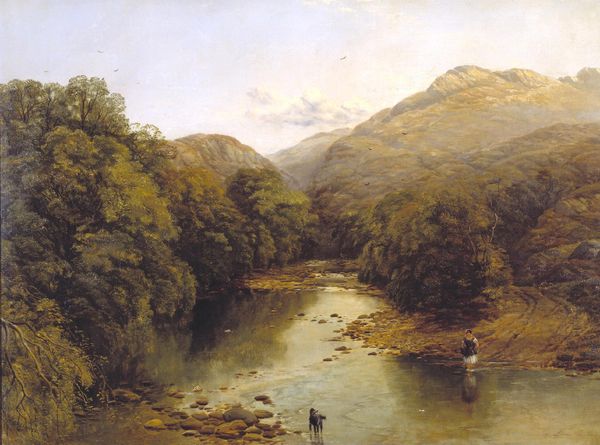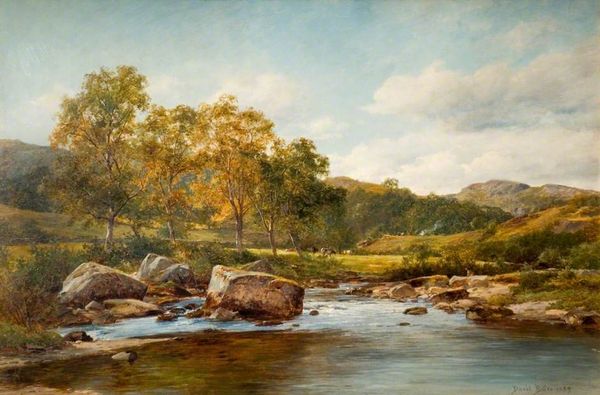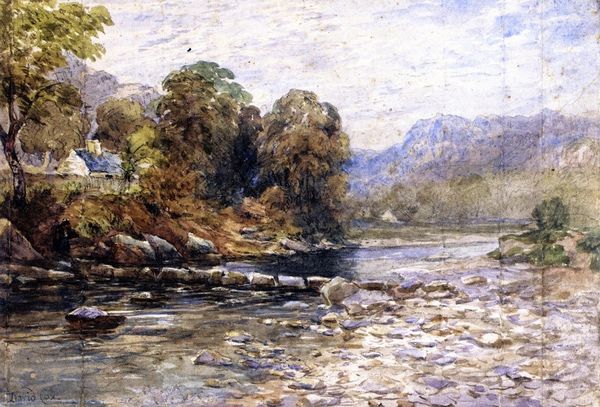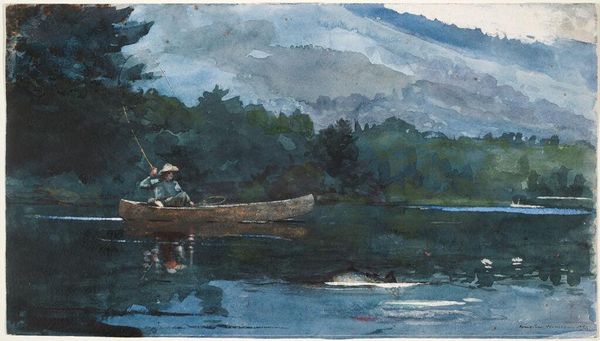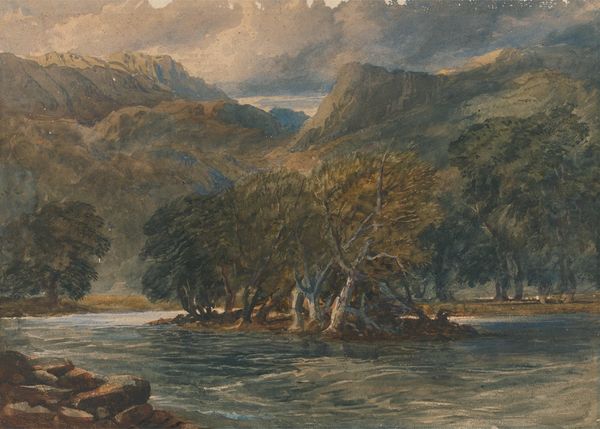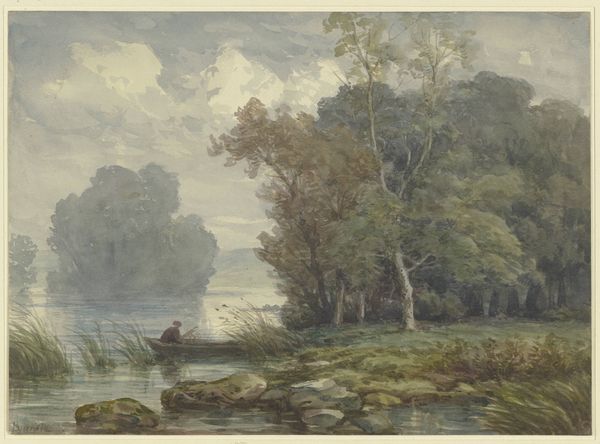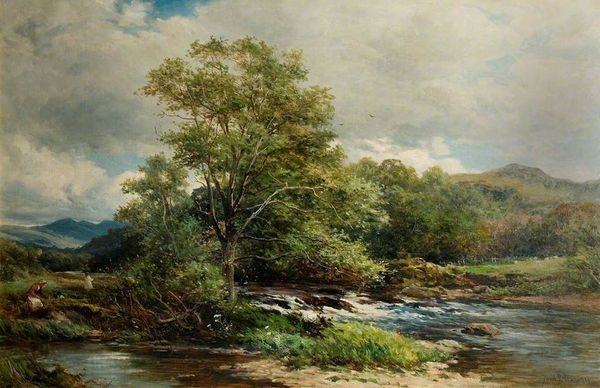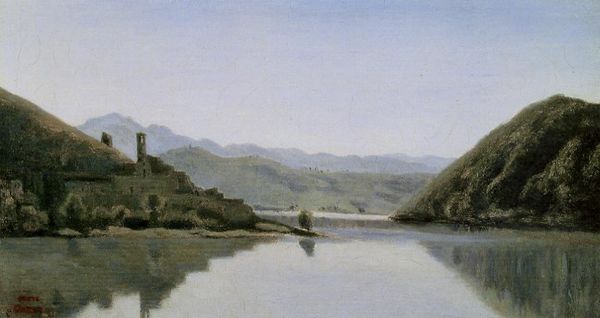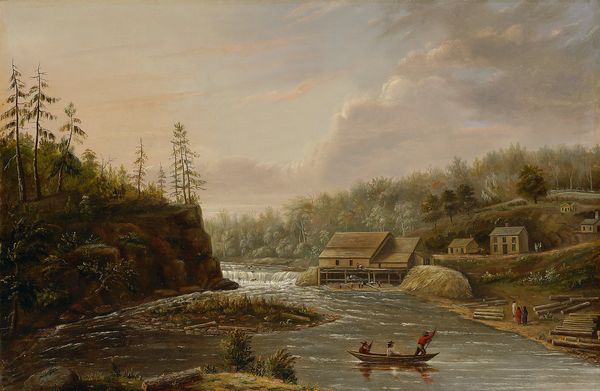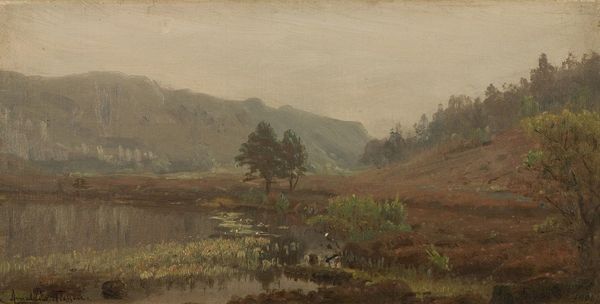
Copyright: Public domain
Julian Ashton painted "Boatman on the Hawkesbury River, at Cole and Candle Creek, near Akuna Bay" in watercolor. The work depicts a lone boatman on a tranquil river, surrounded by the Australian landscape. Ashton arrived in Australia in 1878, becoming a key figure in promoting plein air painting and advocating for a distinctly Australian art. This work reflects that ethos, turning away from European models towards an engagement with the local landscape. The painting reveals the complex relationship between settlement and the environment. The Hawkesbury River, while seemingly untouched, was also a site of colonial expansion, resource extraction, and the displacement of Indigenous peoples. The solitary boatman could be interpreted as a symbol of this ongoing negotiation between humans and nature. To understand the painting better, it would be useful to investigate the history of settlement along the Hawkesbury River and the social and environmental impact of colonial activities in the region. By examining historical documents, maps, and other visual materials, we can gain a deeper understanding of the cultural and historical context of the artwork.
Comments
No comments
Be the first to comment and join the conversation on the ultimate creative platform.
